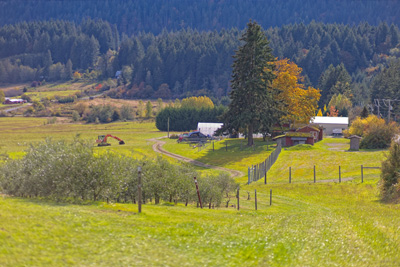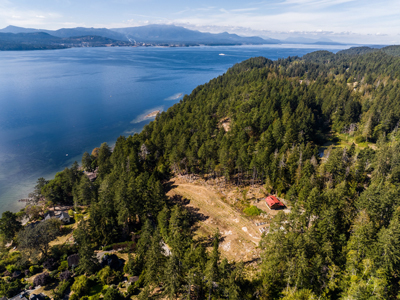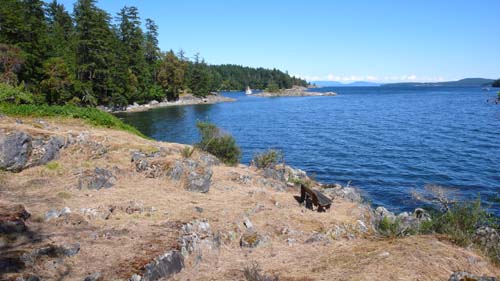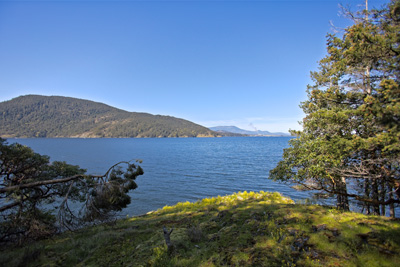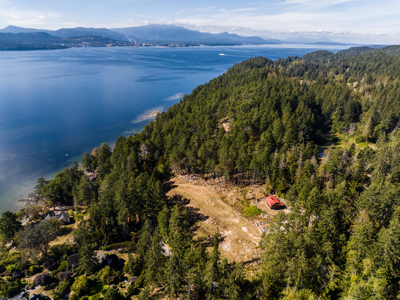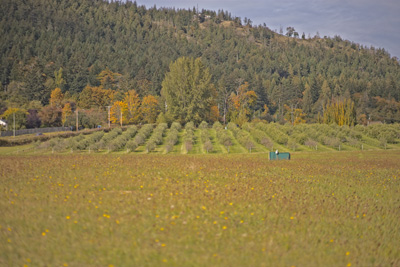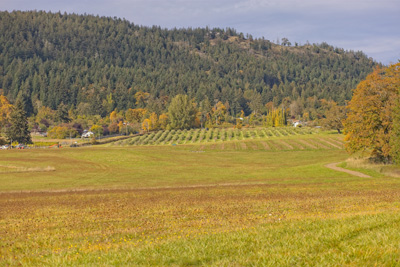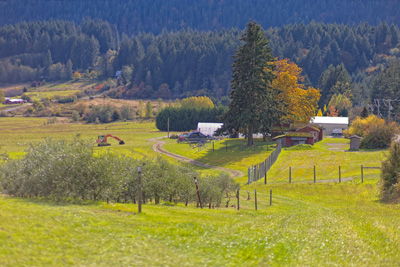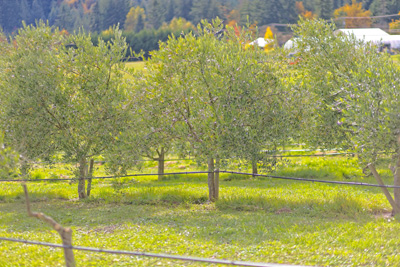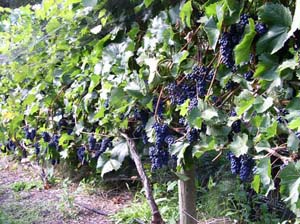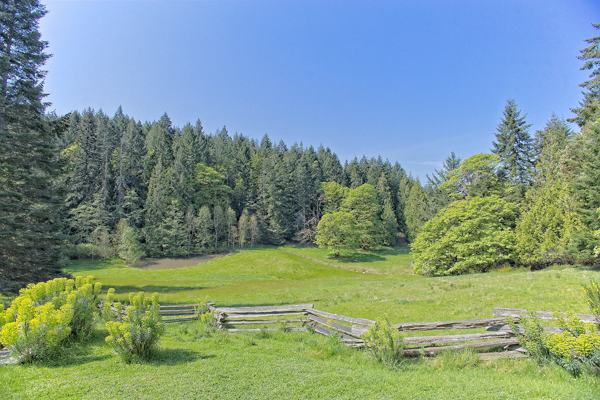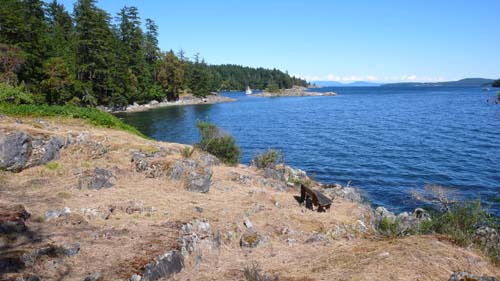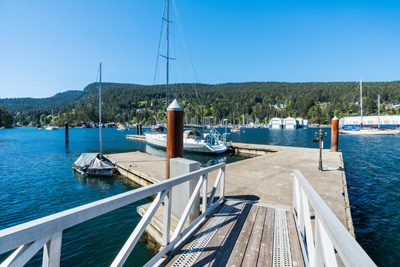March 19, 2025
Letters To The Editor
Too much over-reach by NDP government
I find it ironic that Premier David Eby's rationale for Bill 7 legislation is that it allows him to move quickly to prevent harm to the B.C. economy. I would argue that Eby has caused more harm to the B.C. economy than any premier in modern history.
Bill 7 is just another insidious power grab, couched in protectionist language. We are already feeling the effects of provincial over-reach with Bills 44, 46 and 47, which have spawned the loss of property rights, dismantling of heritage protections, erosion of tree canopies and biodiversity and no commensurate infrastructure to support the unfettered development that has been foisted on our cities.
Let's hope this is a precursor to an early election, as it is time the public told Eby that we don't want to live under a dictatorship.
Nancy Di Castri
Saanich
Democracy dies with Eby's Bill 7
The announcement by Premier David Eby of the imposition of Bill 7, the "Economic Stabilization and Tariff Response Act," on British Columbians represents a dark moment in an increasingly dark time for Canada and the world, but especially for British Columbians.
No legitimate government has the right to give itself emergency powers without the discussion or the participation of a duly-elected assembly. And yet we are seeing this with increasing frequency in B.C., in Canada and around the world.
In Eby's case, as with other political leaders, the intent of the legislation is to guard against theoretical dangers that may occur in a potential future.
Frankly, this isn't good enough. It doesn't meet the litmus test of democratic practice that we have spent centuries of legal precedent and untold sacrifice, not to mention war and blood, trying to establish.
What it does represent is an impingement on people's democratic rights and the negation of their will. The imposition of this bill will cut even more deeply into the rights of citizens who simply want to live a good life under fair and balanced laws.
If, as British Columbians, we are willing to stand for this extraordinary imposition on our democratic rights, then we have no right to complain if, one day, those same rights disappear altogether.
Bill 7 is a thin edge of undemocratic authoritarianism inserted into our lives. It does not bode well for any of us, and it should be withdrawn or scrapped immediately.
Perry Foster
Duncan
Bill 7 pulls us apart during a difficult time
In a democracy, Premier David Eby's proposed Bill 7 Economic Stabilization Act is not required.
Each needed action for change or response to trade and tariffs should be presented in the Legislature for a vote and if the majority in the house agrees, passed.
What is being proposed is nothing short of a dictatorship and welcoming to Putin's Russia-style democracy.
At this time in history, we need to pull together rather than apart.
D'Arcy Morrow
Nanaimo
Nero fiddles while Rome burns
The King of England is figurehead of the Commonwealth, a group of nations fostering international cooperation and promoting shared goals such as democracy, peace and sustainable development.
Canada, a founding member and the largest member of the Commonwealth, is being economically attacked by the most powerful nation of the world with a stated aim of taking over the country.
What does the head of the Commonwealth do to organize its members to help Canada?
The head of the Commonwealth releases his favorite 10 songs.
Yes, Charlie fiddles while Canada burns.
John Barrand
Victoria
Today's the deadline for voting no
Re: "Affordability crisis from Saanich council," letter, March 15.
Saanich council is incapable or unwilling to make real-life decisions about what to give up in the budgeting process.
When families and companies are faced with tough financial decisions, as they are especially today about making ends meet, they are forced to dig deep and find things they can forego or postpone instead of spending money that we don't have. Not so Saanich council!
Instead, council has chosen to get more money outside of the five per cent borrowing limit through an alternate approval process. The total proposed extra borrowing amounts to about $9.6 million at annual debt servicing costs of around $908,000. There is waste in some of those proposals.
For example, bylaw 10025, the second biggest item at $3.1 million, includes more money for cycling infrastructure, including bike lanes, etc.
From what I see in my area around Royal Oak, the bike lanes on West Saanich, Royal Oak, including Mann Ave. and the recently installed traffic obstructions on Old West Saanich and Oldfield roads were unnecessary and are an utter waste of taxpayers' money.
They reflect an ideological rather than a business approach to managing Saanich's financial affairs.
As well, the public was given inadequate notice of these extraordinary financial proposals. The public was notified only through newspapers and consideration of the item at council's Jan. 20 meeting.
This is a highly questionable and cynical approach to managing Saanich's finances. Deficit and debt financing must stop.
You can still vote "No" by completing the forms at the municipal hall or printing them on your computer and delivering them to Saanich. The deadline is 4:30 p.m. today.
Evert Van Eerden
Saanich
Americans have paid our 'tariffs' for years
In response to recent letters about tariffs, let me point out that B.C. and Victoria have had "tariffs" on American property owners for several years. They are known as "speculation tax" and "property transfer tax."
Until December 2024, we had owned a residence in Victoria for more than 30 years. During that time, laws were passed saying if we sold the place, gifted it to our children or died, we would pay a 25 per cent tax on the gain between the current value and our cost.
If we died or gifted the property, we would have to find cash elsewhere to pay the tax.
Also, beginning about eight years ago, we were reclassified as "speculators", even though at that time we had owned the place for more than 22 years and it was enjoyed by four generations of our family. The speculation tax alone was almost $20,000 per year, and was in addition to paying the full amount of property taxes, with no exemptions.
In December we decided we could no longer afford the taxes and sold.
At the close of the sale, the B.C. government withheld 25 per cent of the gross selling price. At some point we might get roughly half of that back.
During those 30 years we put lots of money into the Victoria economy. Our family will miss our regular visits to Victoria, but with the attitude of some of the letters to the editor, we would be reluctant to admit that we are Americans.
Please don't get mad at Americans, most of us don't agree with what is happening. Remember, this too shall pass. Let's stay friends.
Daniel Cunningham
Fresno, California
We don't want to be like Puerto Rico
In keeping with the U.S. cry of "no taxation without representation" I think that the U.S. has much better candidates for statehood than Canada.
Washington D.C. has a populace of 700,000 (more than both Vermont and Wyoming) with no governor or fully-elected representation in both the U.S. Senate and the U.S. House of Representatives.
Similarly, the Commonwealth of Puerto Rico has a populace of more than 3.2 million and no representation. The U.S. citizens of both jurisdictions are subject to U.S. law without representation — ideal candidates to become the 51st and 52nd states.
I hope that this process would occupy the White House for the remainder of the term. In keeping with the current U.S. vogue of re-drawing the world atlas, should Ottawa consider offering provincehood to Alaska and Hawaii?
Paul Morgan
Central Saanich
Many fortune seekers travelled to the Yukon
With the recent report on the Trump family fortune beginning with a "restaurant and brothel" in the Yukon more than 100 years ago, it is hilarious the way left-leaning journalists spend their waking hours trying to trash Donald Trump constantly.
If they were true journalists and readers of history, they would know that the Yukon Gold Rush in the 1800s brought fortune seekers from second sons of England's landed gentry, to adventurers, to down-and-out hopefuls, along with women of ill repute, women hoping for rich husbands — all streaming up from the U.S., Victoria, Vancouver, the Chilcotin and many other points.
They all hoped to make it big, with many enterprising men and women providing supplies, rustic hotels and raunchy women for the influx of all the dreamers. Persevering through awful northern wilderness conditions, history has applauded their ingenuity and doggedness.
We pampered folks in this century couldn't manage without our cars, face creams and cappuccinos.
Well done, to the Trumps and their contemporaries of old!
Barbara Zielinski
Victoria
U.S. financial collapse stopped Harper's plans
Re: "Stephen Harper's memory is not selective," letter, March 15.
Based on my recollections of the time leading up to the 2008 financial crisis, my impression is that individuals do have both short and selective memories.
Stephen Harper advised us that his government was on a path towards deregulating Canada's financial institutions. By what seemed more like good luck than good management, he was "saved by the bell" with the financial collapse in the United States that year, before a Canadian de-regulation plan could be enacted.
Laurie McDonald
Gabriola
Let's rebuild trust to weather future storms
During the COVID pandemic, it wasn't the vaccines, masks or social isolation that I was afraid of, but their mandatory imposition.
I remember, early on in the vaccine mandates, trying to understand why we were threatening individuals with job loss and social isolation for not taking one of the new vaccines — while at the same time many individuals around the world wanted access to vaccines but were unable to get them.
When I tried to ask my MLA and MP for a pointer to whatever cost-benefit analysis had been done, they said it was a medical decision. When I asked my family doctor and Healthlink, they said it was a political decision.
My fear is that due to the imposition of mandates in the past, individuals will be less trusting of guidance in the future.
My hope is that, with a bit of contrition and humility, we can rebuild a level of trust that will let us weather future storms together.
Scott Newson
Nanaimo
Stay Tuned!!!
March 13, 2025
Emergency Powers Bill
The B.C. Provincial government has just brought in a draft bill (March 13th) giving itself extensive emergency powers,
in order to be able to act unilaterally to respond to potential further tariffs from U.S. This would allow the Premier
to act without any legislative oversight. It has had first reading.
The issue and impacts of proposed tariffs are worrying, and they will cause disturbance to the way things were being
done, but they do not fall into the category of war or global pandemic.

This is a worrying development by a premier who is in a minority position, without the deal he struck yesterday with the
two elected Greens, to support his NDP. This unnecessary bill will be in place until May 2027...unless gov't decides to
extend it. This is a very serious thing, covers many things, and is not perhaps limited to tariffs responses. The
premier should call an election and let this be up to the electorate. This bill will allow the premier to be the sole
decider of all things going forward.
Canada’s Next Prime Minister
Federally, on March 14th, the new leader of the Liberal party will be sworn in as Prime Minister, and his cabinet
choices will also be sworn in. It is expected that he will call for an election, before the prorogued parliament
reconvenes at end of March. We will then hear his ideas about negotiation with the U.S. President.
The premiers of the provinces are dealing with various specific and differing provincial issues and therefore are unable
to speak broadly for the country itself. It will take time to begin interprovincial trade...long standing barriers in
place between each province have to be removed. This does not happen quickly.
Federal Uncertainty Stalls Real Estate Momentum
In the meantime, across Canada, people are treading water about real estate decisions, and are again taking a wait and
see response. The uptick in markets in October, November, December, January began to slow in February...due to
uncertainty. If there is an early federal election, it may take until late May to see the pattern of the 2025
marketplace appear.
At the moment, locally, low inventory continues and prices remain relatively stable. Listings are up in Vancouver, which
has been the main source of our buyers since 2016. A desire for the safety of a rural lifestyle and a preservation of
capital (a currency concern) are still the two main drivers of action here. A pause in activity has once more developed.
Stay Tuned!!!
March 4, 2025
(Real estate updates from real estate boards are always one to two months behind. Transactions need to close in order to be counted in a month’s outcomes. In March, it is the January and/or February stats that are reported.
Today, on March 4th, the U.S. tariffs on Canada began. Canadian business leaders are of the opinion that the proposed counter retaliatory tariffs from Canada are political and not necessarily productive. The outcome of tariffs for each province will be different and are not yet fully understood.
Below, is the Vancouver Board February market report. Since 2016, the main buyer profile on Salt Spring has been a purchaser from Vancouver).
After a 46 per cent year-over-year increase of new listings in January, the number of newly listed properties on the MLS® in Metro Vancouver* rose more moderately in February helping keep market conditions in balanced territory.
The Greater Vancouver REALTORS® (GVR) reports that residential sales in the region totalled 1,827 on Metro Vancouver's Multiple Listing Service® (MLS®) in February 2025, an 11.7 per cent decrease from the 2,070 sales recorded in February 2024. This total was 28.9 per cent below the 10-year seasonal average (2,571).
"After the rush of new listings in January, home sales and new listings in February were closer to historical averages, which has positioned the overall market in balanced conditions,” Andrew Lis, GVR’s director of economics and data analytics said. “With a potential Bank of Canada rate cut on the table for mid-March, homebuyers may find slightly improved borrowing conditions while enjoying the largest selection of homes on the market since pre-pandemic times."
There were 5,057 detached, attached and apartment properties newly listed for sale on the MLS® in February 2025. This represents a 10.9 per cent increase compared to the 4,560 properties listed in February 2024. This was 11.6 per cent above the 10-year seasonal average (4,530).
The total number of properties currently listed for sale on the MLS® system in Metro Vancouver is 12,744, a 32.3 per cent increase compared to February 2024 (9,634). This is also 36.4 per cent above the 10-year seasonal average (9,341).
- Across all detached, attached and apartment property types, the sales-to-active listings ratio for February 2025 is 14.8 per cent.
- By property type, the ratio is 10.7 per cent for detached homes, 18.5 per cent for attached, and 16.8 per cent for apartments.
Analysis of the historical data suggests downward pressure on home prices occurs when the ratio dips below 12 per cent for a sustained period, while home prices often experience upward pressure when it surpasses 20 per cent over several months.
"Balanced market conditions typically bring a flatter price trajectory, and we've seen prices across all segments remain in a holding pattern for the past few months,” Lis said. "But with the active spring season just around the corner, it will be interesting to see whether buyers take advantage of some of the most favorable market conditions seen in years, and whether sellers change their willingness to bring their properties to market."
The MLS® Home Price Index composite benchmark price for all residential properties in Metro Vancouver is currently $1,169,100. This represents a 1.1 per cent decrease over February 2024 and a 0.3 per cent decrease compared to January 2025.
Sales of detached homes in February 2025 reached 477, a 14.8 per cent decrease from the 560 detached sales recorded in February 2024. The benchmark price for a detached home is $2,006,100. This represents a 1.8 per cent increase from February 2024 and is virtually unchanged compared to January 2025.
Sales of apartment homes reached 976 in February 2025, a 10.6 per cent decrease compared to the 1,092 sales in February 2024. The benchmark price of an apartment home is $747,500. This represents a 2.8 per cent decrease from February 2024 and a 0.1 per cent decrease compared to January 2025.
Attached home sales in February 2025 totalled 359, a 10.9 per cent decrease compared to the 403 sales in February 2024. The benchmark price of a townhouse is $1,087,100. This represents a 1.2 per cent decrease from February 2024 and a 1.7 per cent decrease compared to January 2025.
March 2025

Wow...it's meteorological Spring today, the first of March. This begins the seasonality that is treasured on the great Pacific Northwest Coast: early Spring, Spring, Summer, early Fall. March Break (mid-March) to Canadian Thanksgiving (mid-October) are key seasons for Salt Spring and the Gulf Islands.
The islands real estate market continues to follow the trends of the past two plus years: lack of inventory and relatively stable pricing. The main buyer profile has continued to be a Vancouver/Lower Mainland purchaser.
The reasons for seeking a Gulf Islands/Salt Spring Island property are two-fold: one, a desire to leave urban for rural (to be self-sufficient). There also continues to be an interest in preservation of capital through a real estate purchase in a unique area...emphasizing a currency concern.

There is not a lot of choice for a buyer. Most owners are not wanting to be sellers. There is always opportunity, though, and some buyers may need to consider shared ownership models as a way into a market that rarely sees first time buyers.
The outcome of the Islands Trust governance model (put in place in 1974, by the provincial government) was to cap growth through strict zoning/bylaws restrictions. It's important for buyers to read about the Islands Trust online...to pay attention to those bylaws/zoning restrictions...and to also look at the Official Community Plan and to Development Permit Area restrictions. These can supersede the original bylaws. It's important to understand the community "rules" before buying.
At the moment, there are approximately 95 listings (all property types...residential, land, commercial) on the MLS system. In a more balanced market, there would be around 380 listings. Lack of inventory remains the issue, and can lead to buyer hesitations.

2024 saw the beginning of many societal changes and 2025 appears to be continuing these shifts. It can be both alarming and energizing, when one encounters serious changes. We don't get to choose our "time", though...just our reaction to it.
The current referencing to potential U.S. reciprocal tariffs has reminded Canadians of their inability to trade between provinces. This is something that needs to be done. The lack of this has nothing to do with outside tariffs. It makes no sense to keep provinces isolated from each other, economically.
In B.C., business groups have recently come up with a plan to support economic pro-growth options. They point out that both provincially and federally there have been no-growth policies for at least a decade and that has nothing to do with outside tariffs either. Hmmmm......

The flexing of U.S. policies that emphasize that country's outcomes could also benefit Canada's rethink about our own dynamics. So many talented Canadians may have moved south in past years, as Canada did not offer the same opportunities. What were our governments doing?
The concern over the impact of proposed reciprocal tariffs, from our biggest trading partner, has brought forward many different "forecasts" about the economy, going forward. Real estate is one of the pillars of economic health in Canada, and the spectrum of current forecasts ranges from "we will continue to see slow growth" to "we will see a correction/downturn". Many scenarios talk about a softening of sales and lowering of prices, with an improving trend in 2028.
These are the same people who were insisting that the covid shutdowns of early 2020 would cause a crash and then we ended late 2020/into 2021 with "over ask" bidding wars and an erasing of inventory...plus dramatic price increases.

Our lower dollar is attracting interested U.S. buyers...although the federal government ban on foreign buyers (brought in on January 1, 2023 and put in place until January 1, 2025...then extended till January 1, 2027) may be in place, there are many exemptions and it doesn't apply to land or to commercial options. (The ban was brought in to help solve the lack of housing dilemma).
Lots to be concerned about...this month we will find out who will replace Trudeau and also whether there will be an early federal election. We will hear the budget from the provincial government and learn about their plan to create economic strength for B.C. The question of tariffs will be answered. And so forth and so on..... It is difficult to point to a trend at this exact moment. It may take until late April or mid-May to understand the tone of the 2025 market.
Meantime: it's a good plan to take advantage of this seasonal awakening, to enjoy the beauties of the natural world that are erupting all around us, to remember to get out and about (beachcombing, hiking, picnics, tastings, al fresco dining, farmers markets, kayaking, art gallery openings, spa retreats, sailing adventures, theatre discoveries, and day trips to companion islands....in other words, to remember to live...and to simply and calmly breathe).
Opportunity always exists...we just need to be looking. And your thoughts are? Always welcome!
Real Estate Mid Market Update: Early 2025
Analyzing shifts in the Salt Spring Island real estate market.
Changing Market Conditions
Real estate markets are not static items...they change (and the shifts can be rapid), as different elements come to the fore.
2024 saw renewed sales in October, November, December...with projections for 2025 mentioning continuing low inventory and potential for resulting price increases.

Salt Spring Island
Since then, the early days of 2025 have seen the prime minister stepping down, a Liberal party seeking a leader replacement, and an understanding that all this will result in a Spring federal election.
At the same time, the incoming president of the U.S., our biggest trading partner, appears to be serious about his 25% tariff hit for Canada. The premiers are not of one voice regarding response, and B.C.'s premier acknowledges that such tariffs would decimate the B.C. economy. Meanwhile, the absence of a leader/prime minister role federally means no unified voice for negotiations.
Markets do not like uncertainty.
These early days of 2025 are showing mixed signals, and it may take until late April or May to see coherent outcomes in real estate activity.
The diminishing value of the Canadian dollar might be one reason owners are not wanting to be sellers...as a way of preserving capital through a real estate investment.
The Bank of Montreal (BMO) is stating that real estate outcomes may not improve markedly until 2029. Different reasons are given. Again, projections and trends can change quickly in any market-driven sector, and these concepts are not static reports...it is opinion.
Meantime, low inventory & buyer reluctance make it difficult for marketing decisions by realtors...and various marketing venues are noting less uptake. The year has opened with unexpected shifts...always interesting.
Questions/comments? Look forward to hearing from you.
Real Estate Mid Market Update: Early 2025
Analyzing shifts in the Salt Spring Island real estate market.
Changing Market Conditions
Real estate markets are not static items...they change (and the shifts can be rapid), as different elements come to the fore.
2024 saw renewed sales in October, November, December...with projections for 2025 mentioning continuing low inventory and potential for resulting price increases.

Salt Spring Island
Since then, the early days of 2025 have seen the prime minister stepping down, a Liberal party seeking a leader replacement, and an understanding that all this will result in a Spring federal election.
At the same time, the incoming president of the U.S., our biggest trading partner, appears to be serious about his 25% tariff hit for Canada. The premiers are not of one voice regarding response, and B.C.'s premier acknowledges that such tariffs would decimate the B.C. economy. Meanwhile, the absence of a leader/prime minister role federally means no unified voice for negotiations.
Markets do not like uncertainty.
These early days of 2025 are showing mixed signals, and it may take until late April or May to see coherent outcomes in real estate activity.
The diminishing value of the Canadian dollar might be one reason owners are not wanting to be sellers...as a way of preserving capital through a real estate investment.
The Bank of Montreal (BMO) is stating that real estate outcomes may not improve markedly until 2029. Different reasons are given. Again, projections and trends can change quickly in any market-driven sector, and these concepts are not static reports...it is opinion.
Meantime, low inventory & buyer reluctance make it difficult for marketing decisions by realtors...and various marketing venues are noting less uptake. The year has opened with unexpected shifts...always interesting.
Questions/comments? Look forward to hearing from you.





